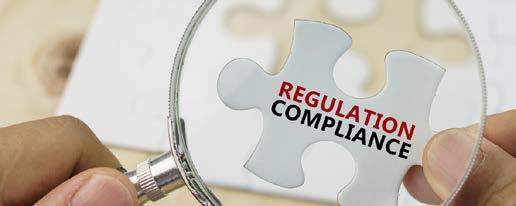
1 minute read
Wise-up to packaging Pitfalls!
from SPN June 2023
by spnews.com
Four Ways To Avoid Sustainable Packaging Pitfalls Before 2024
By Gillian Garside-Wight, consulting director of sustainable packaging consultancy Aura
Advertisement
Gillian Garside-Wight
Packaging transparency is business-critical
The arrival of EPR simply reinforces the growth of greater awareness when it comes to sustainability in consumers whose expectations have changed the face of the sector. They see its place as part of the overall product experience and will now demand a shift to true sustainable packaging. That means brands that don’t offer transparent solutions (or worse, make false claims/greenwash) might just be de-influenced and even face backlash. People vote with their wallets as well as taking brands down on Twitter.
It will all come out in the (green)wash
This year’s Packaging Innovations event was quite a show, featuring keynotes from everything from the circular economy and recycling infrastructure, to new packaging technologies. However, unsurprisingly, one of the most consistent topics of concern from the show floor was the EPR legislation that’s set to come into effect on the 1st April 2024, with reporting requirements from later this year.
There is absolutely no doubt that this will have a huge impact on retailers, brands and packaging manufactures alike. No-one wants to be behind the curve, so here are the four factors - in a nutshell – that our sector needs to heed in order to stay ahead of the curve once EPR goes live and beyond.
Repackage your business, not just your packaging

Out-of-date, retrospective data on sustainability wastes hundreds of hours of time for businesses and hiring a large EPR compliance team will always cost. That means brands will have to refocus around technology solutions that deliver better data at their fingertips. So thinking in terms of the bigger, circular economy picture, it’s averages and estimates that hold it back from becoming a reality, which means EPR submissions will have to be supplied using definitive, real-time data.
On a related note, as consumer attitudes shift, more of us are concerned about taking sustainability seriously. The current status of a lot of packaging alluding to sustainability targets or vagaries without delivering on them is over. That will be a challenge for many brands, because EPR is not the only legislation out there. Current rules are both regionalised and inconsistent - and debate continues to rage over recycling policies and infrastructure improvements. Some businesses may be greenwashing without even realising it.
Stop selling hot air
Finally, think about what isn’t being sent. Many brands may be haemorrhaging capital by having too much air in their packaging, making boxes bigger and shipments more expensive as well as affecting their sustainability credentials. It’s yet another example of just how many factors there are to consider when it comes to packaging, and why having the right real-time data to manage them is so vital.










